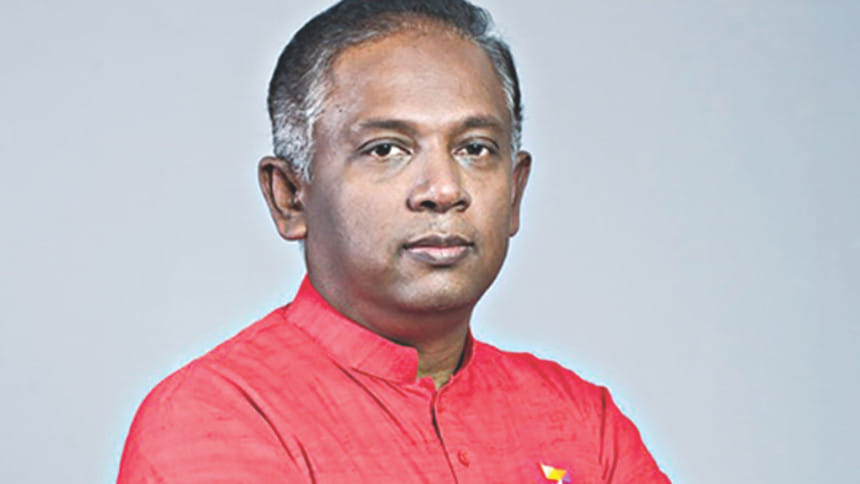Shareholders may consider sale of Robi, says CEO

The government’s move to raise the mobile operators’ turnover tax to 2 percent from 0.75 percent from the new fiscal year will drive the smaller operators out of the industry, said Mahtab Uddin Ahmed, chief executive officer and managing director of Robi.
In a group interview in his office yesterday, he said the increased tax on turnover will turn them into a lossmaking venture even though they had projected to make about Tk 50 core in net profit in 2019 at the beginning of the year.
“Robi logged in profit in the first quarter but thanks to the proposed tax measures -- which will be the highest in the world -- the trend will not continue for the rest of the year.”
In 2018, Robi had declared Tk 214.7 crore in net profits. The operator’s shareholders are very frustrated about the new tax measures and Ahmed will not be surprised if they decide to put Robi up for sale.
Referring to a study by PricewaterhouseCoopers (PwC), Ahmed said apart from Bangladesh only two other countries have turnover tax and their rates are much lower than Bangladesh’s.
Pakistan charges up to 1.5 percent, while Nigeria charges 0.25 percent to 0.5 percent based on different parameters.
Ahmed said Robi had planned to get listed on the stock market if their profit streak continued throughout 2019.
“But now we need to rethink our plan.”
Other than the hike in turnover tax the National Board of Revenue also increased the supplementary duty on mobile usage to 10 percent from 5 percent along with the existing 15 percent value-added tax and 1 percent surcharge.
This leaves the mobile users in Bangladesh the most taxed after Turkey.
Mobile users in Turkey count 32 percent direct tax, while their Bangladeshi counterparts pay about 27.50 percent.
“The customers will be the ultimately loser and that will reduce the government’s overall revenue collection from this industry.”
Ahmed, also the acting president of Association of Mobile Telecommunication Operators of Bangladesh (AMTOB), said increasing the import duty for smartphones to 25 percent from 10 percent will also impair the industry.
Robi have invested huge sums last year to build its 4G network but only 21 percent of their customers are using 4G-enabled devices.
“This huge investment has become useless and we may not invest for network expansion if we find no business case.”
3G completely failed in Bangladesh and 4G is also facing the same fate, he said, adding that there is no business case for 5G with the existing tax framework.
The government has also proposed to raise the SIM tax to Tk 200 from Tk 100 from fiscal 2019-20, which will restrict the growth of the industry, said Shahed Alam, chief corporate and regulatory officer at Robi.
“In 2015, when SIM tax was Tk 300, we had projected that if the government reduced the amount its earning will increase from the segment and it turned out to be true,” he added.
The overall tax structure contradicts with the government’s Digital Bangladesh vision, said Ahmed, also the first chief executive officer in a foreign-owned mobile operator.
Axiata Group took mobile licence in Bangladesh in 1997 and now they are the second largest operator in the country with 4.76 crore active connections as of April.
Robi has so far invested $3 billion in Bangladesh, $2 billion of which were made since 2011. Since its inception, its shareholders took only $52 million.

 For all latest news, follow The Daily Star's Google News channel.
For all latest news, follow The Daily Star's Google News channel. 



Comments